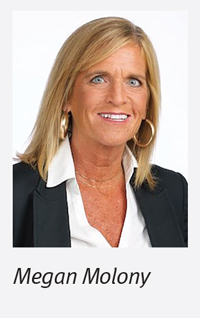National Vision Embraces Sustainable Goals Across Its Company, Lab and Product Mix
DULUTH, Ga.—National Vision, Inc. (NVI) has been escalating its sustainability efforts for a few years now. Its Sustainabiity Report, launched in 2021, spells out much of that from the view of a national retail operation with over 1,000 locations, laboratories, associates and other social purpose activities. Inside NVI, the company shined a light on work done at the group’s Plano, Texas laboratory. The company’s website details the initiative.
“At every step of the lab operations, we look for opportunities to be cost-conscious while maintaining high quality—because for our customers, affordability really matters. We want more people to be able to afford the eyewear they need, and efficiency in our lab operations is a big part of how National Vision is able to achieve that,” said Bob McKinzie, National Vision’s senior vice president of manufacturing and supply chain.
“As socially responsible corporate citizens, we proactively look for opportunities to make decisions that are both low-cost and environmentally aware. Often, these go hand-in-hand.”
“National Vision’s optical lab in Plano has achieved the lowest operating cost of all labs in our lab network. Despite rising costs for materials and increased wages for workers, the Plano lab has still been able to drive down costs and set a new standard for lab operations,” he said.

|
|
|
|
On the merchandising side in the stores, sustainable collections have been examined for a while. Megan Molony, NVI’s chief merchandising and managed care officer, told VM, “Social and environmental responsibility are part of National Vision’s DNA. We’ll continue to evolve our product offering to ensure we’re offering environmentally responsible eyewear that also meets our customers’ budgets, vision and fashion needs.
“This year, we launched our Green Love frame collection, which uses Eastman Acetate Renew. With the Green Love collection, we’re excited to be able to offer frames that showcase groundbreaking carbon renewal technologies and what’s possible as the industry advances in our ability to recycle complex plastic wastes in an impactful way.”
Molony added, “We also worked with CooperVision last year to be able to offer 100 percent net plastic neutral contact lenses in Eyeglass World and America's Best Contacts & Eyeglasses.
“Affordability is core to our customers, and giving them the ability to choose products that reflect their sustainability values is critical,” she said. “Being mindful of that, we strive to find quality products that deliver both affordability and positive impact. Our customers shouldn’t have to sacrifice affordability, style or quality in order to choose a product that does good in the world.
“We're seeing this extend beyond environmental impact, too, as our customers have responded very positively to products that represent their values in other areas, such as our frames capsule celebrating Pride, or our new See Inside frames collection honoring mental health awareness, as well as participating in the philanthropic register giving program we initiated last year.”
As for raising the profile of sustainability with customers, Molony added, “We want people to know that sustainable products are available even before they come in the door, so we leverage our website, social channels, email and in-store signage to tell these product stories. Associate training is key, so that they can be a resource for customers who want to know what impact their purchase is making.”
|